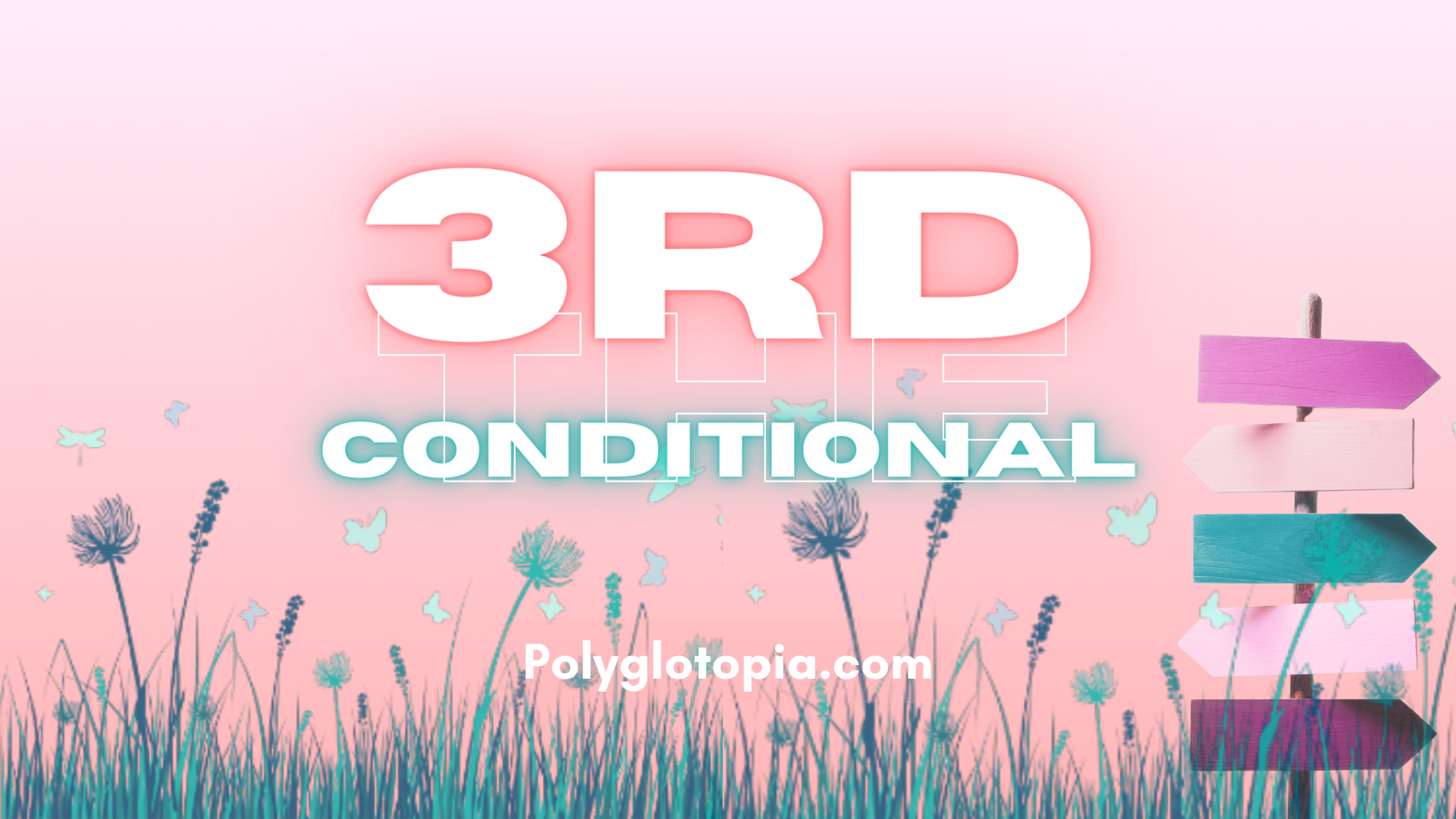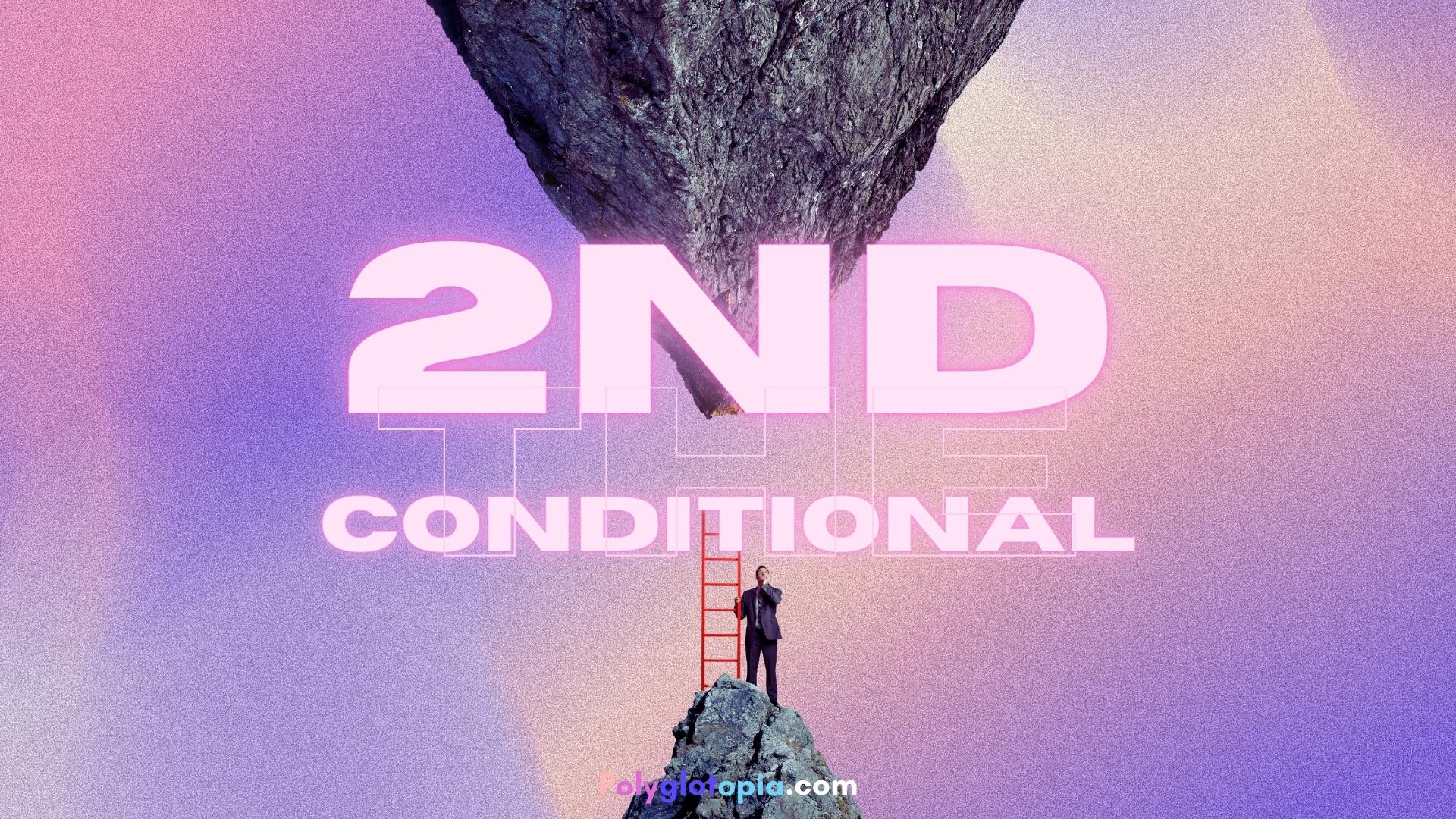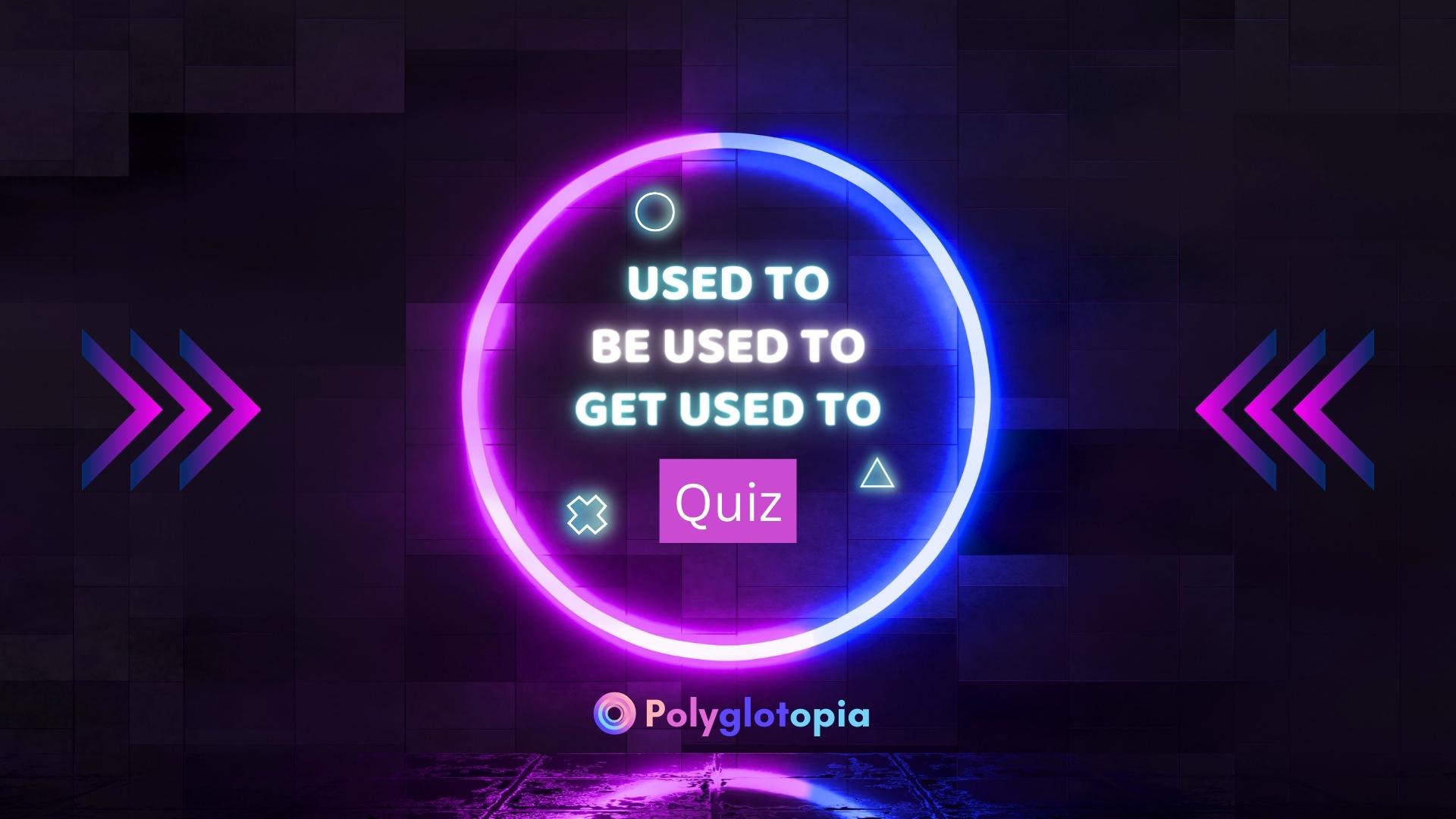Making predictions about the future is a common topic of conversation, so you are going to need the necessary tools to do it in English. Two common ways of expressing predictions about future events are with will and going to. But what are the differences between the two? In this article and quiz, we’ll explore the distinctions between “will” and “going to” and how to use them correctly.
Whether you’re a beginner or a more advanced learner of English, understanding the nuances of these two forms will help you express your ideas and opinions about future events with greater clarity and accuracy. So, let’s dive in and test your knowledge!
Grammar explanation
Use
Will and going to are both used to make predictions about the future. But what are their differences? The basic difference is that going to is used when there is evidence related to the prediction. For example: I can see the clouds. It is going to rain.
On the other hand, will is used to make predictions based on beliefs. For example: I think you will become good friends. (This is what I believe, but there is no evidence). Expressions that usually go together with will for predictions are: I think, I believe, I doubt, I bet.
Don’t worry too much as English speakers many times use them interchangeably, but keep these general guidelines in mind for your grammar exams.
Let’s now move on to how they are formed.
Form
Do you know the famous verb to be? If you do, that’s good news!
Let’s look again at the example:
It is going to rain.
Subject + verb to be + going to + infinitive
Remember to change the verb to be depending on the subject.
Affirmative
I am going to pass the exam.
He/She/It is going to pass the exam.
You/We/they are going to pass the exam.
Negative:
I am not going to pass the exam.
He/She/It is not going to pass the exam.
You/We/They are not going to pass the exam.
Interrogative:
Am I going to pass the exam?
Is he/she/it going to pass the exam?
Are you/we/they going to pass the exam?
Are you wondering how to form a prediction with will? That’s even easier. Let’s see the example:
You will become good friends.
Subject +will + infinitive
Remember to use an infinitive after will. For example: She will be very happy.
Not: she will is very happy or she will very happy.
Affirmative
Subject +will + infinitive
Negative
Subject +will not (won’t) + infinitive
Interrogative
Will + subject + infinitive?
If you see this ‘ll, instead of will, don’t get confused. It’s the same, but it’s a contraction, used in spoken English as well as when writing informal e-mails/articles.

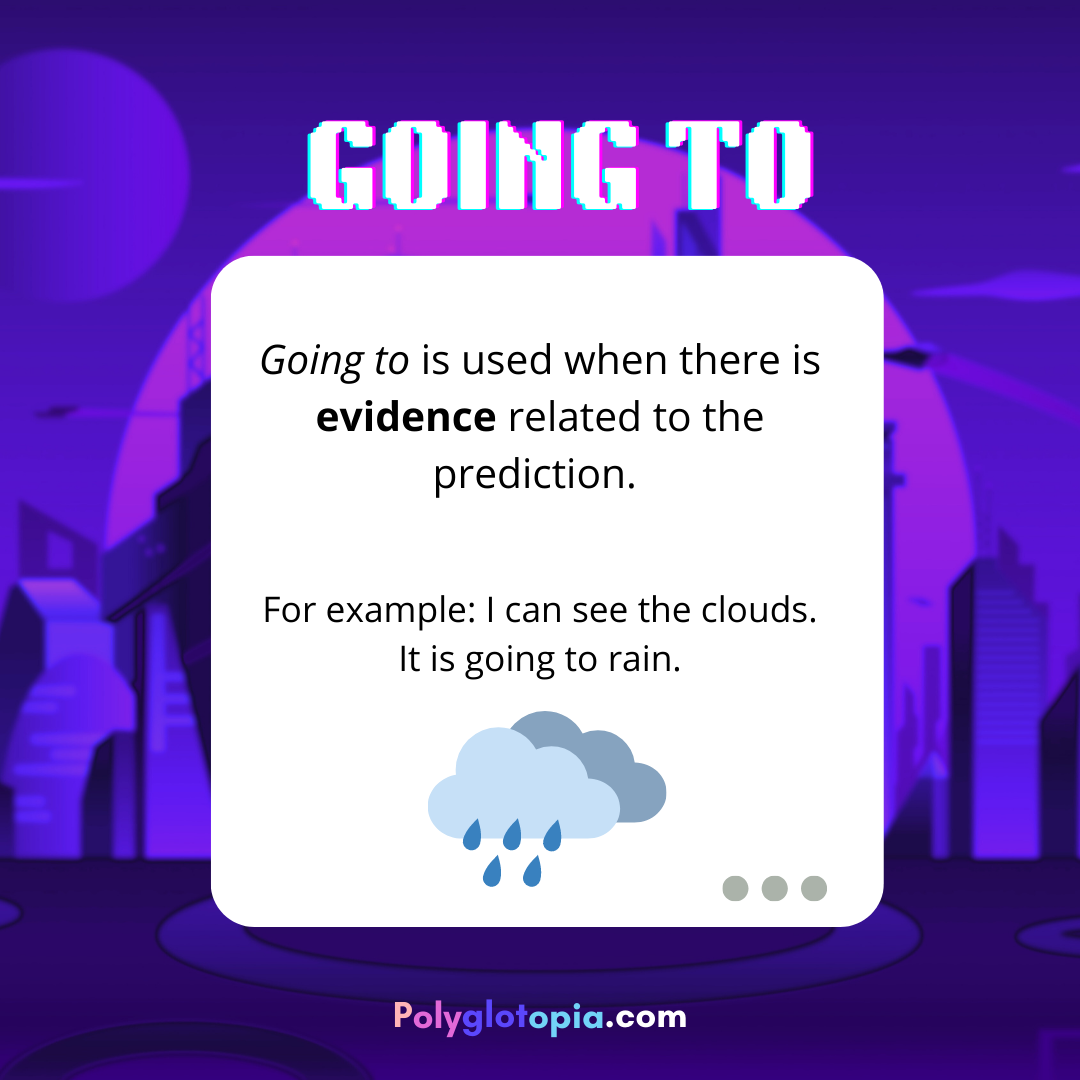
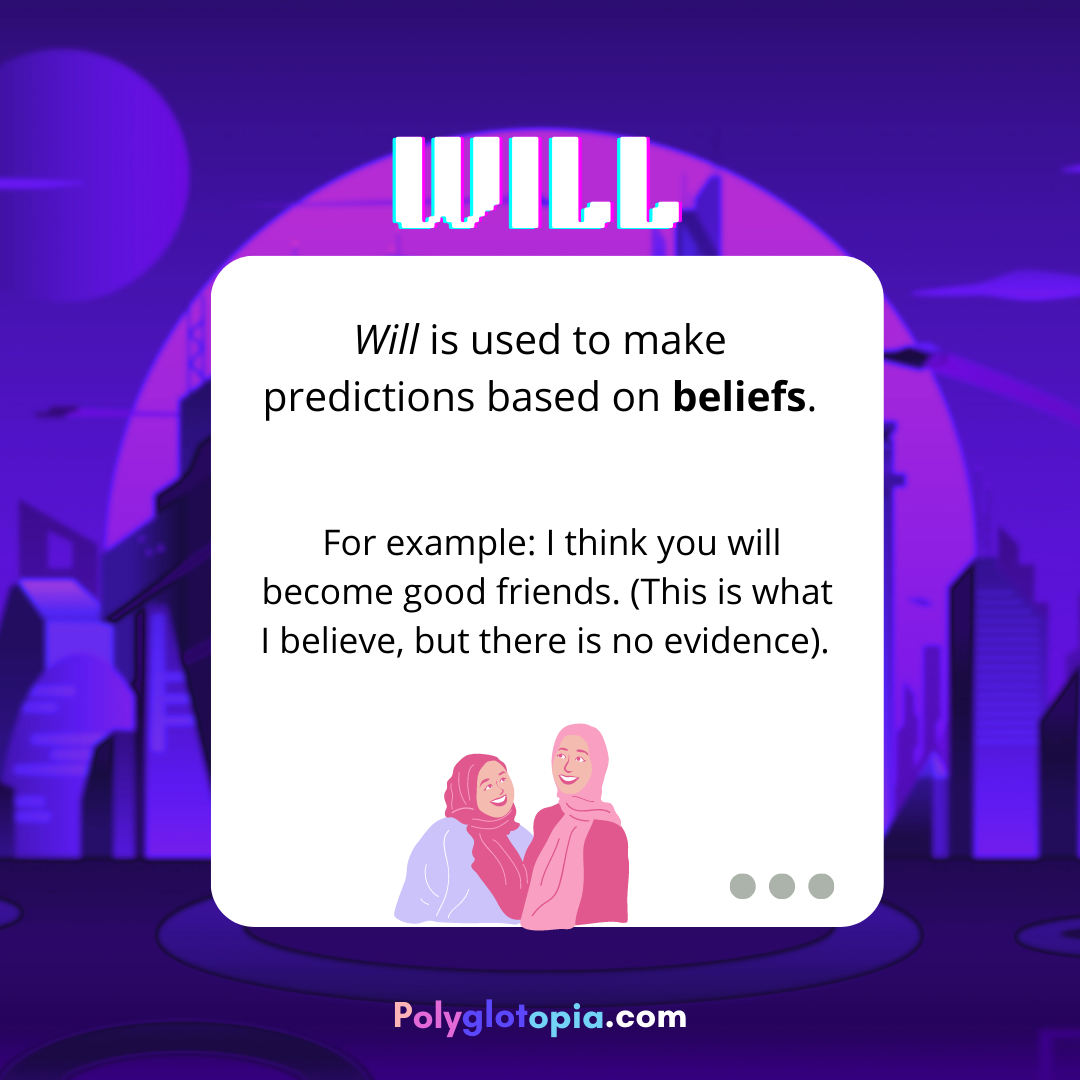
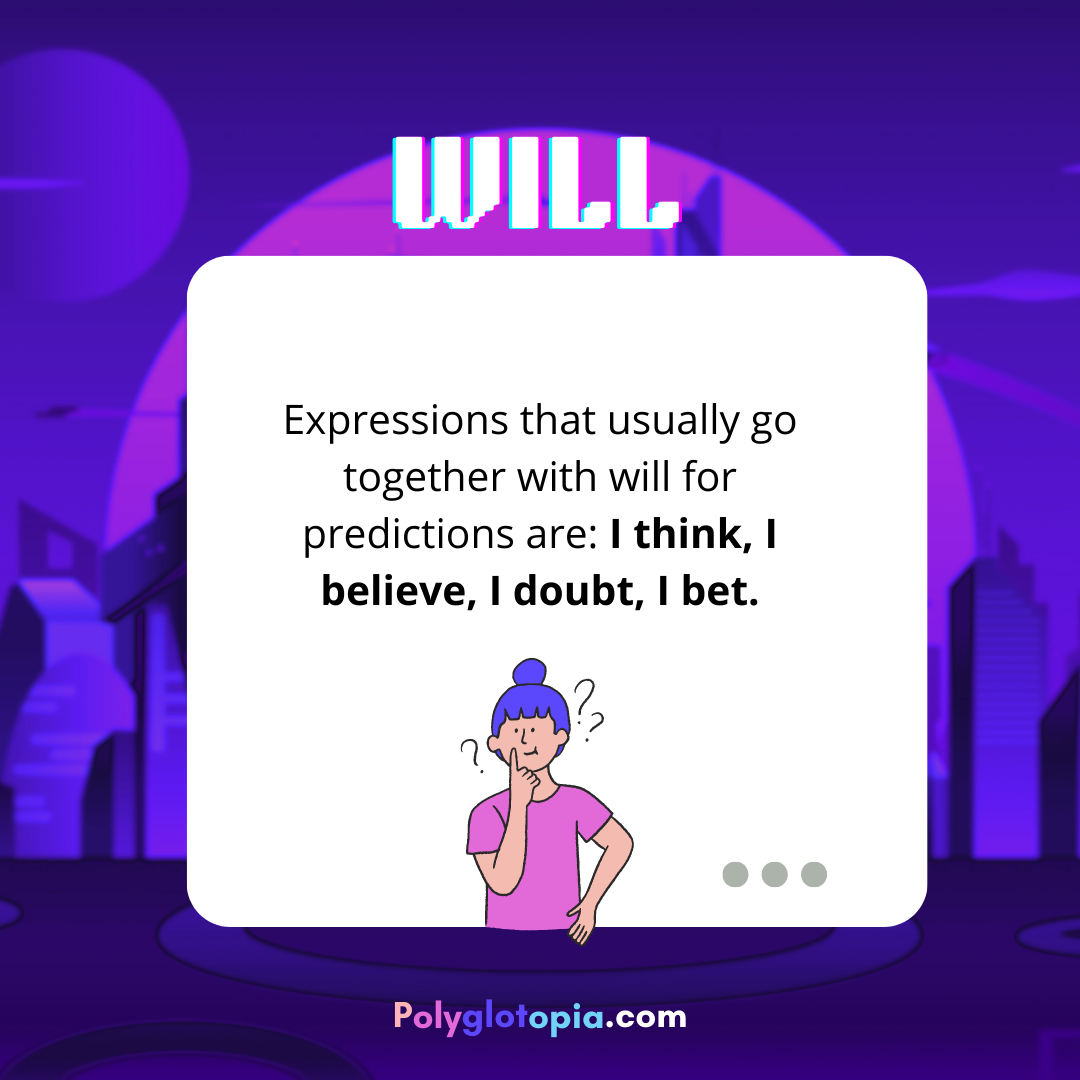
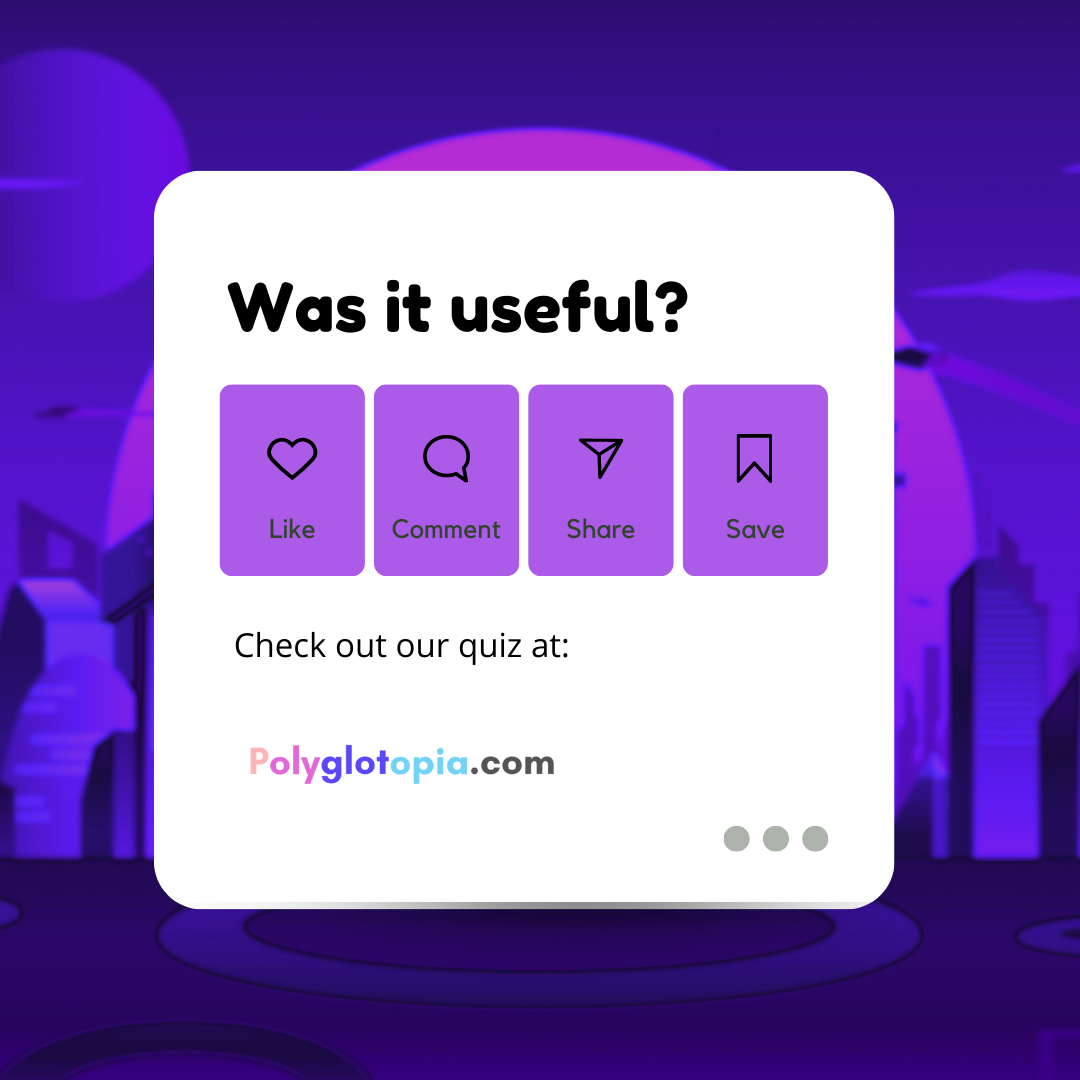
Follow us on social media for posts like this!
Ready to test your knowledge?
Sit comfortably and do the quiz. Good luck!
Congratulations, Quiz Completed.
Questions : 10
Wrong Answers :
Right Answers :
Grade : %

